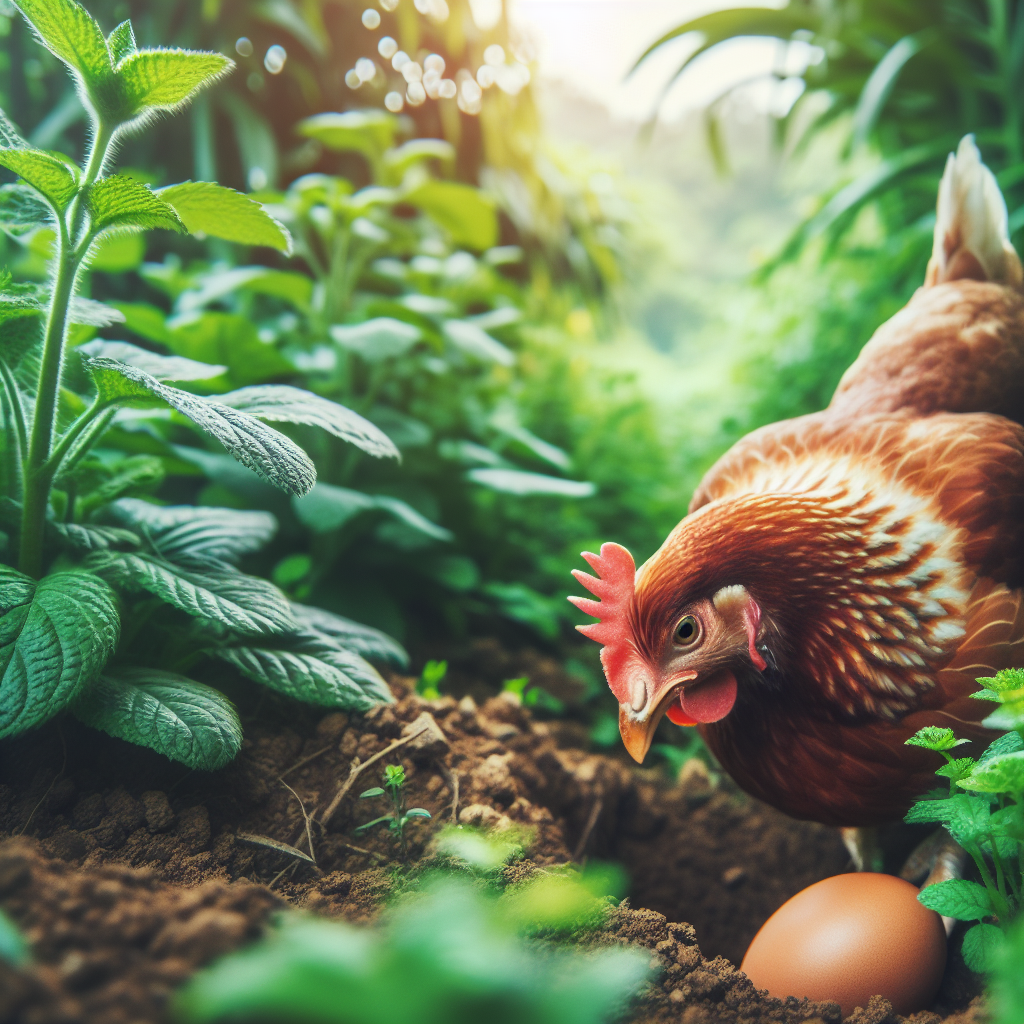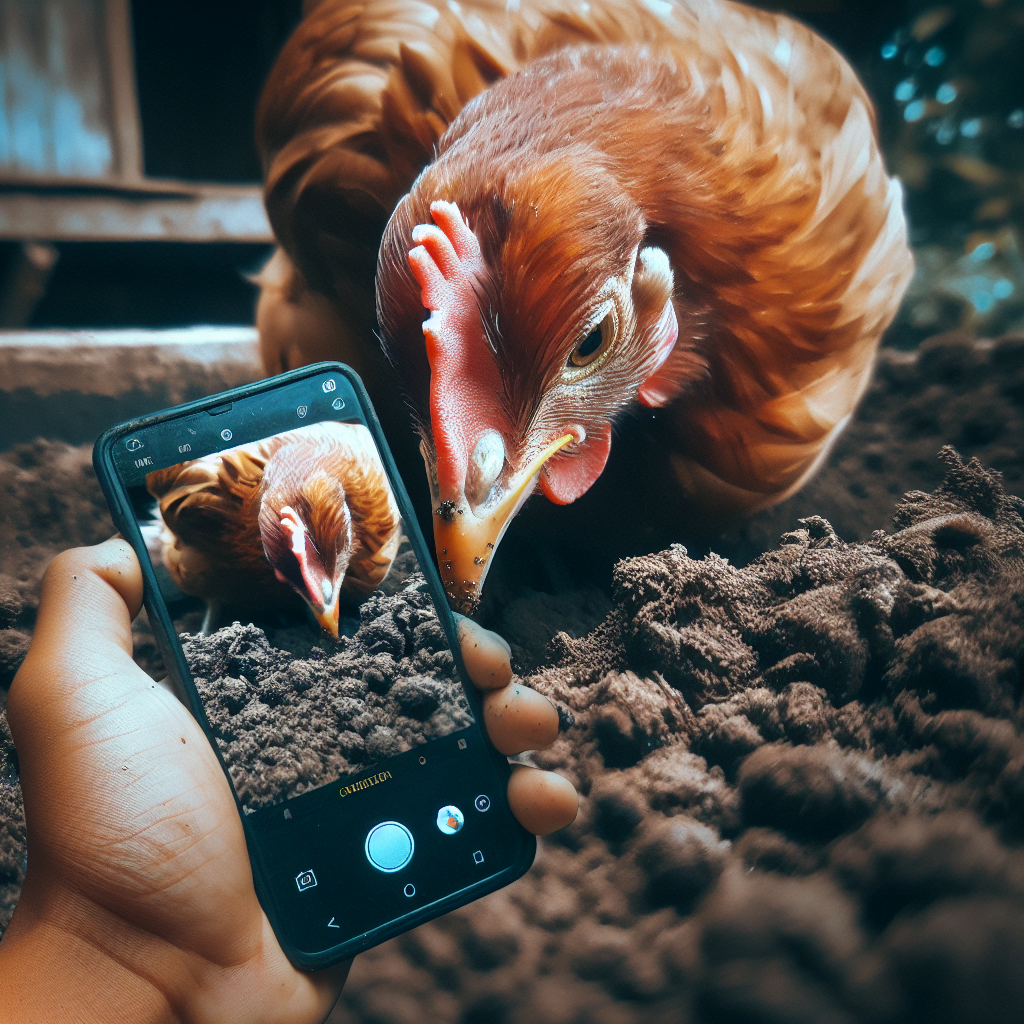Are you a chicken farmer looking to ensure ethical practices in your operations? If so, you may be wondering what resources or courses are available to support you in this endeavor. Understanding and implementing ethical practices in chicken farming not only benefits the welfare of the birds but also enhances the overall sustainability of your farm. In this article, we will explore some valuable resources and courses that can provide you with the knowledge and guidance you need to prioritize ethical practices in your chicken farming operations.
Books
The Ethics of Animal Agriculture by Clair Linzey
“The Ethics of Animal Agriculture” by Clair Linzey is a highly recommended book for those seeking to understand the ethical implications of chicken farming. This comprehensive guide explores the complex relationship between humans and animals in the agricultural industry, specifically focusing on the ethical considerations involved in raising chickens. Linzey delves deep into topics such as animal welfare, environmental impact, and the moral obligations of farmers. Through thought-provoking analysis and compelling arguments, this book provides valuable insights into the ethical dilemmas surrounding chicken farming.
The Small-Scale Poultry Flock by Harvey Ussery
For those interested in implementing ethical practices in chicken farming on a smaller scale, “The Small-Scale Poultry Flock” by Harvey Ussery is an invaluable resource. This book offers practical advice and guidance for anyone looking to raise chickens in a humane and sustainable manner. Ussery emphasizes the importance of providing a natural and enriching environment for chickens, including free-ranging opportunities, organic feed, and holistic healthcare. With its emphasis on small-scale, sustainable practices, this book is an excellent choice for individuals seeking to integrate ethical considerations into their chicken farming operations.
The Chicken Health Handbook by Gail Damerow
“The Chicken Health Handbook” by Gail Damerow is a must-have reference for chicken farmers concerned about the health and well-being of their flocks. While not explicitly focused on ethics, this book plays a crucial role in ethical chicken farming by emphasizing the importance of preventative care and responsible husbandry practices. By prioritizing the health and welfare of chickens, farmers can ensure that they are treating their animals ethically and providing the best possible care. This comprehensive guide covers everything from common diseases and ailments to nutritional needs and holistic remedies, making it an indispensable resource for both novice and experienced chicken farmers.
Online Courses
Introduction to Ethical Chicken Farming
If you’re new to ethical chicken farming and looking for a comprehensive introduction, the “Introduction to Ethical Chicken Farming” online course is a great starting point. This course covers the fundamental principles of ethical farming, including animal welfare, environmental sustainability, and humane production practices. Through lectures, interactive modules, and real-life case studies, participants will gain a solid understanding of the ethical considerations involved in chicken farming and how to implement these practices on their own farms. Whether you’re a complete beginner or looking to enhance your knowledge, this course provides a solid foundation for ethical chicken farming.
Advanced Topics in Chicken Farming Ethics
For those who have already established a basic understanding of ethical practices in chicken farming, the “Advanced Topics in Chicken Farming Ethics” online course offers a deeper dive into complex issues. This course explores the ongoing ethical debates and challenges facing the chicken farming industry, such as genetically modified organisms (GMOs), factory farming, and the use of antibiotics. Participants will engage in critical discussions, analyze various perspectives, and develop practical solutions to these ethical dilemmas. By deepening your knowledge and understanding of these advanced topics, you’ll be better equipped to make informed decisions regarding the ethical practices in your chicken farming endeavors.
Ethical Practices in Chicken Farming: A Comprehensive Guide
If you’re looking for a comprehensive guide to the implementation of ethical practices in chicken farming, the “Ethical Practices in Chicken Farming: A Comprehensive Guide” online course is an excellent resource. This course covers a wide range of topics, from housing and welfare standards to environmental sustainability and community engagement. Through interactive modules, instructional videos, and practical exercises, participants will learn how to integrate ethical considerations into every aspect of their chicken farming operations. Joining this course allows you to connect with like-minded individuals, engage in discussions, and share best practices, making it a valuable experience for anyone committed to ethical chicken farming.
Educational Websites
EthicalChickenFarming.org
EthicalChickenFarming.org is a comprehensive educational website dedicated to promoting and supporting ethical practices in chicken farming. This website offers a wealth of resources, including articles, guides, and case studies, all aimed at helping farmers understand and implement ethical practices. Whether you’re looking for practical tips on improving animal welfare, guidance on sustainable farming methods, or information on the latest research in the field, EthicalChickenFarming.org has you covered. The website also features a community forum where farmers can connect, share experiences, and seek advice from experts in the field.
ChickenFarmersEthics.com
ChickenFarmersEthics.com is another valuable educational website that provides a wealth of information on ethical practices in chicken farming. From articles and blog posts to informative videos and interviews with industry experts, this website covers a wide range of topics relevant to ethical chicken farming. Whether you’re a beginner looking for basic guidelines or an experienced farmer seeking to enhance your knowledge, ChickenFarmersEthics.com offers a user-friendly platform to explore the ethical dimensions of chicken farming. The website also hosts webinars and online workshops, allowing farmers to engage directly with industry professionals and learn from their experiences.
EthicsInPoultry.com
EthicsInPoultry.com is a comprehensive online resource dedicated to addressing ethical issues in the poultry industry. With articles, research papers, and educational materials, this website provides a comprehensive overview of the current ethical landscape in poultry farming. Whether you’re interested in animal welfare, environmental sustainability, or social responsibility, EthicsInPoultry.com covers it all. The website also hosts a blog where experts and farmers share their insights and experiences, fostering a sense of community and encouraging dialogue among those committed to ethical poultry farming.
Industry Conferences
Annual Conference on Ethical Chicken Farming
The Annual Conference on Ethical Chicken Farming brings together farmers, industry professionals, and experts to discuss and explore ethical practices in chicken farming. This conference provides a platform for learning, networking, and sharing experiences among individuals who are committed to producing chicken in an ethical and sustainable manner. The conference features keynote presentations, panel discussions, workshops, and breakout sessions, covering a wide range of topics relevant to ethical chicken farming. Whether you’re interested in animal welfare, environmental sustainability, or community engagement, attending the Annual Conference on Ethical Chicken Farming offers a valuable opportunity to expand your knowledge and connect with like-minded individuals.
Chicken Farming Ethics Workshop
The Chicken Farming Ethics Workshop is a focused and intensive program aimed at helping farmers understand and implement ethical practices in their chicken farming operations. This workshop provides hands-on training, expert guidance, and practical insights into the ethical considerations involved in chicken farming. Participants will engage in interactive sessions, gain practical skills, and develop strategies for integrating ethical practices into their farms. By attending the Chicken Farming Ethics Workshop, you’ll not only gain valuable knowledge but also be empowered to make positive changes in your chicken farming practices.
Ethical Practices in Poultry Farming Symposium
The Ethical Practices in Poultry Farming Symposium is an annual gathering that brings together researchers, scholars, and industry professionals to discuss and explore the latest advancements in ethical practices in poultry farming. This symposium hosts presentations, panel discussions, and poster sessions, allowing participants to exchange ideas, share research findings, and collaborate on innovative solutions in the field of ethical poultry farming. By attending this symposium, you’ll have the opportunity to learn from leading experts, contribute to the advancement of ethical practices, and network with professionals who share your passion for responsible chicken farming.
Certifications
Certified Ethical Chicken Farmer (CECF)
The Certified Ethical Chicken Farmer (CECF) certification is an industry-recognized credential that demonstrates a farmer’s commitment to ethical practices in chicken farming. This certification program evaluates various aspects of a farmer’s operation, including animal welfare protocols, environmental sustainability practices, and community engagement initiatives. By meeting the rigorous standards set forth by the certification body, farmers earn the CECF designation, providing assurance to consumers and stakeholders that their chicken farming practices are ethically and responsibly conducted. The CECF certification not only enhances a farmer’s credibility but also opens up opportunities for collaboration and engagement with like-minded individuals and organizations.
Ethical Poultry Farming Certification (EPFC)
The Ethical Poultry Farming Certification (EPFC) is a globally recognized certification that signifies a farmer’s commitment to ethical practices in poultry farming. This certification program evaluates various ethical factors, including animal welfare, environmental sustainability, and social responsibility. By meeting the criteria established by the certification body, farmers can proudly display the EPFC logo, instilling confidence in consumers and stakeholders about the ethical and responsible nature of their poultry farming operations. The EPFC certification provides farmers with a competitive advantage in the market, as it demonstrates their commitment to the highest possible standards in ethical poultry farming.
Sustainable Chicken Farming Certification (SCFC)
The Sustainable Chicken Farming Certification (SCFC) is a certification program that recognizes and promotes sustainable practices in chicken farming. This certification evaluates a farmer’s sustainable farming practices, including resource conservation, waste management, and environmental stewardship. By meeting the requirements set forth by the certification body, farmers can proudly display the SCFC certification, demonstrating their commitment to sustainable and ethical chicken farming practices. The SCFC certification not only appeals to environmentally conscious consumers but also opens up opportunities for collaboration with sustainability-focused organizations and retailers.
Research Papers
The Ethics of Chicken Farming: A Comprehensive Review
“The Ethics of Chicken Farming: A Comprehensive Review” is a research paper that provides a comprehensive analysis of the ethical considerations surrounding chicken farming. This paper explores various ethical frameworks, discusses environmental and animal welfare impacts, and examines the social and economic implications of chicken farming. By synthesizing current research findings and analyzing case studies, this paper offers valuable insights into the ethical dilemmas faced by chicken farmers and the potential solutions to address them. Whether you’re a farmer, researcher, or policymaker, this research paper serves as a valuable resource for understanding the multifaceted nature of ethical chicken farming.
Case Studies on Ethical Dilemmas in Poultry Farming
“Case Studies on Ethical Dilemmas in Poultry Farming” is a collection of real-life scenarios that highlight the complex ethical challenges faced by chicken farmers. This research paper presents a series of case studies, each exploring a different ethical dilemma and the potential implications for the farmers involved. By analyzing these case studies, readers gain a deeper understanding of the ethical considerations and decision-making processes involved in chicken farming. This research paper serves as a valuable educational tool, providing farmers, students, and researchers with practical insights into the ethical dimensions of poultry farming.
The Impact of Ethical Practices on Chicken Welfare
“The Impact of Ethical Practices on Chicken Welfare” is a research paper that examines the relationship between ethical practices and the welfare of chickens. This paper explores various aspects of chicken welfare, such as housing conditions, access to outdoor space, and the use of antibiotics. By analyzing scientific studies and empirical evidence, this research paper highlights the positive impact that ethical practices can have on the well-being of chickens. Farmers, researchers, and policymakers can use this research paper to gain a deeper understanding of the ethical dimensions of chicken welfare and to inform their decision-making processes.
Government Resources
Department of Agriculture: Guidelines for Ethical Chicken Farming
The Department of Agriculture provides guidelines for ethical chicken farming to ensure the welfare and responsible treatment of chickens. These guidelines outline recommended practices in areas such as housing, nutrition, health, and environmental management. By adhering to these guidelines, farmers can ensure that their chicken farming practices align with the ethical standards set forth by the government. The Department of Agriculture also offers resources and support to help farmers implement these guidelines effectively, making it a valuable resource for anyone seeking to understand and implement ethical practices in chicken farming.
Environmental Protection Agency: Regulations on Ethical Poultry Farming
The Environmental Protection Agency (EPA) plays a crucial role in regulating and monitoring ethical practices in poultry farming. The EPA establishes guidelines and regulations that aim to minimize the environmental impact of chicken farming operations. These regulations cover areas such as waste management, water conservation, and air quality control. By complying with the EPA’s regulations, farmers can ensure that their farming practices are environmentally responsible and align with ethical considerations. The EPA also provides resources and support to help farmers navigate these regulations and implement sustainable practices on their farms.
National Institutes of Health: Ethical Standards for Chicken Research
The National Institutes of Health (NIH) sets ethical standards for chicken research to ensure that experiments involving chickens are conducted responsibly and with the utmost regard for animal welfare. These ethical standards cover a range of topics, including the housing and care of research chickens, the use of anesthesia and pain management, and the minimization of distress during experimental procedures. By adhering to the NIH’s ethical standards, researchers can ensure that their research involving chickens is conducted ethically and follows best practices. The NIH also provides resources and guidance to help researchers navigate these ethical considerations effectively.
Industry Associations
National Chicken Farmers Association (NCFA)
The National Chicken Farmers Association (NCFA) is an industry association that represents the interests of chicken farmers and promotes responsible and ethical practices in the industry. The NCFA provides resources, educational materials, and networking opportunities to its members, allowing them to stay informed about the latest developments in ethical chicken farming. By being an active member of the NCFA, farmers have access to a supportive community of like-minded individuals and can contribute to shaping the future of ethical practices in the chicken farming industry.
Ethical Poultry Farmers Alliance (EPFA)
The Ethical Poultry Farmers Alliance (EPFA) is an alliance of farmers, organizations, and industry professionals dedicated to promoting and advancing ethical practices in poultry farming. The EPFA provides a platform for collaboration, knowledge-sharing, and advocacy, allowing members to collectively address the ethical challenges in the industry. By joining the EPFA, farmers gain access to valuable resources, networking opportunities, and educational events that support the implementation of ethical practices in their poultry farming operations.
Sustainable Chicken Farming Council (SCFC)
The Sustainable Chicken Farming Council (SCFC) is a council that focuses on promoting and supporting sustainable practices in chicken farming. This council brings together stakeholders from across the industry, including farmers, researchers, policymakers, and consumers, to collaborate on initiatives that advance ethical and sustainable chicken farming. The SCFC develops guidelines, shares best practices, and advocates for policies that prioritize environmental sustainability, animal welfare, and social responsibility. By being a part of the SCFC, farmers can align their farming practices with the council’s sustainability objectives and gain access to resources and support to enhance their ethical farming practices.
Online Forums and Communities
EthicalChickenFarmers.com Forum
The EthicalChickenFarmers.com Forum is an online community where chicken farmers, enthusiasts, and industry professionals come together to discuss and share knowledge about ethical practices in chicken farming. This forum serves as a platform for open dialogue, allowing members to ask questions, share experiences, and exchange ideas related to ethical chicken farming. By participating in the EthicalChickenFarmers.com Forum, farmers can connect with a supportive community, seek advice from experienced individuals, and gain valuable insights to improve their own ethical farming practices.
Chicken Farmers for Ethical Practices Facebook Group
The Chicken Farmers for Ethical Practices Facebook group is a community of chicken farmers united by their commitment to ethical practices in chicken farming. As a closed group, this community provides a space for open and honest discussions about the ethical dimensions of chicken farming. Members can share resources, ask questions, seek advice, and connect with like-minded individuals who share their passion for responsible chicken farming. By joining the Chicken Farmers for Ethical Practices Facebook group, farmers can benefit from the collective knowledge and experiences of a supportive community dedicated to ethical farming practices.
Sustainable Poultry Farming Reddit Community
The Sustainable Poultry Farming Reddit community is an online platform where chicken farmers, researchers, and enthusiasts come together to discuss and share information about sustainable and ethical poultry farming. This community provides a forum for members to ask questions, share stories, learn from others’ experiences, and discover valuable resources related to ethical chicken farming. By participating in the Sustainable Poultry Farming Reddit community, farmers can connect with individuals from around the world who are dedicated to sustainable and ethical farming practices, fostering a global network of like-minded individuals.
Local Workshops and Training
Ethical Chicken Farming Workshop at Local Agricultural Center
Local agricultural centers often offer workshops and training sessions focused on ethical chicken farming. These workshops provide hands-on training, practical demonstrations, and expert guidance on implementing ethical practices in chicken farming. Participants have the opportunity to learn from experienced farmers, ask questions, and gain practical skills that can be applied on their own farms. Attending an ethical chicken farming workshop at your local agricultural center is an excellent way to engage with your local community, connect with fellow farmers, and enhance your knowledge and understanding of ethical farming practices.
Hands-On Training in Ethical Poultry Farming Techniques
Hands-on training programs specifically designed to teach ethical poultry farming techniques are an invaluable resource for farmers seeking to implement ethical practices in their chicken farming operations. These training programs offer a combination of classroom instruction and practical demonstrations, allowing participants to gain firsthand experience in applying ethical farming methods. By participating in hands-on training in ethical poultry farming techniques, farmers can enhance their skills, learn new approaches, and strengthen their commitment to ethical and responsible chicken farming.
University Extension Programs in Chicken Farming Ethics
Many universities offer extension programs that focus on various aspects of chicken farming, including ethical considerations. These programs provide a wealth of resources, including courses, workshops, and educational materials, to help farmers understand and implement ethical practices in chicken farming. University extension programs often engage with experienced faculty members, industry experts, and researchers, allowing participants to gain insights from multiple perspectives. By enrolling in a university extension program in chicken farming ethics, farmers can enhance their knowledge, connect with the academic community, and access valuable resources to guide their ethical farming practices.
By utilizing the wide array of resources and courses available, you can gain a comprehensive understanding of ethical practices in chicken farming and implement these principles on your own farm. Whether it’s through books, online courses, educational websites, industry conferences, certifications, research papers, government resources, industry associations, online forums, or local workshops, there are countless opportunities to learn and grow in your journey towards ethical chicken farming. Embracing ethical practices not only benefits the welfare of your chickens but also contributes to sustainability, environmental health, and the overall well-being of your farming community. So, dive into these resources, engage with others in the field, and let your commitment to ethical chicken farming flourish.




